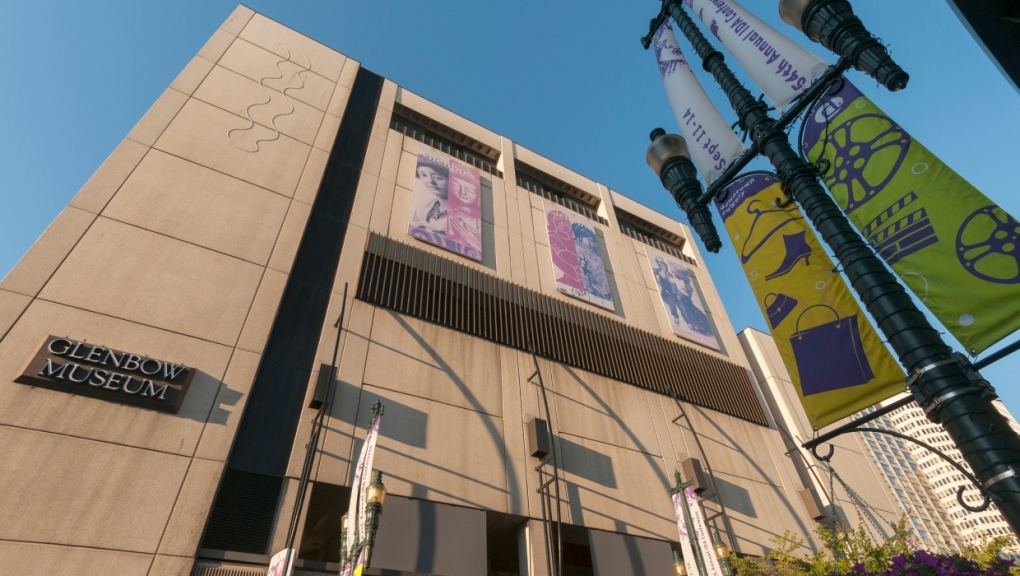Calgary's Glenbow Museum benefits from $3.5M donation
 A stock photo showing the exterior of Calgary's Glenbow Museum. (Getty Images)
A stock photo showing the exterior of Calgary's Glenbow Museum. (Getty Images)
A campaign to renovate Calgary's Glenbow Museum received a big boost on Thursday thanks to a donation from two of its supporters.
Dave and Susan Norman-Werklund gave the facility $3.5 million toward its Glenbow Reimagined fundraiser, which was established to help with the building's ongoing transformation.
As a result of the generous contribution, the second floor feature gallery has been renamed the Werklund Exhibition Gallery.
"Glenbow is ecstatic to receive this generous support from David and Susan," said Nicholas R. Bell, Glenbow's president and CEO in a release.
"This is one more extraordinary example of their continuing leadership in this community – and one that will bolster Calgary's presence on a global stage. The world's greatest exhibitions will find a home in our city thanks to the Werklund family."
Once complete, the renovated gallery will feature exhibitions that explore historical and contemporary art, fashion, design and innovation from around the world.
The Werklunds say they are "honoured" to have the gallery named after them.
"We are thrilled to see the vision for the newly revised Glenbow come to fruition and to be a part of the new and exciting exhibitions that will be part of Calgary's vibrant cultural and arts scene," they said.
The museum is expected to reopen in 2024 after extensive renovations to the 312,000 square-foot building.
More information about the project can be found online.
CTVNews.ca Top Stories

Aviation experts say Russia's air defence fire likely caused Azerbaijan plane crash as nation mourns
Aviation experts said Thursday that Russian air defence fire was likely responsible for the Azerbaijani plane crash the day before that killed 38 people and left all 29 survivors injured.
Police identify victim of Christmas Day homicide in Hintonburg, charge suspect
The Ottawa Police Service says the victim who had been killed on Christmas Day in Hintonburg has been identified.
Teen actor Hudson Meek, who appeared in 'Baby Driver,' dies after falling from moving vehicle
Hudson Meek, the 16-year-old actor who appeared in 'Baby Driver,' died last week after falling from a moving vehicle in Vestavia Hills, Alabama, according to CNN affiliate WVTM.
Boxing Day in Canada: Small retailers fear big shopping day won't make up for tough year
It’s one of the busiest shopping days of the year: Boxing Day sees thousands of people head to malls and big box stores to find great deals. But it's not so simple for smaller shops.
Raised in Sask. after his family fled Hungary, this man spent decades spying on communists for the RCMP
As a Communist Party member in Calgary in the early 1940s, Frank Hadesbeck performed clerical work at the party office, printed leaflets and sold books.
Sinkhole prompts lane closures on Interstate 80 in New Jersey
A sinkhole that opened up Thursday along Interstate 80 in northern New Jersey forced authorities to close the heavily travelled highway's eastbound lanes.
Cat food that caused bird-flu death of Oregon pet was distributed in B.C.: officials
Pet food contaminated with bird flu – which killed a house cat in Oregon – was distributed and sold in British Columbia, according to officials south of the border.
Police in New Brunswick investigating Christmas Eve sudden death
An unconscious individual was found in the 600-block area of Lancaster Avenue early Christmas Eve morning, and was later pronounced dead at a hospital.
Spending the holiday season alone this year? How to make the most of it
Spending the holidays alone can feel lonely or empty, but it doesn't have to be that way.































